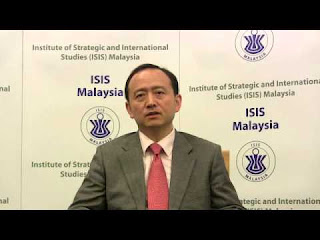Negotiating code conduct for Navigation Marine in South China Sea to Prevent Measure of Conflict and War.
Why do wars occur and recur, especially in cases when the decisions involved are
made by careful and rational actors? There are many answers to this question. Given the
importance of the question, and the wide range of answers, it is essential to have a
perspective on the various sources of conflict.
One is that the costs of
war cannot be overwhelmingly high. By that we mean that there must be some plausible
situations in the eyes of the decision makers such that the anticipated gains from a war in
terms of resources, power, glory, territory, and so forth exceed the expected costs of
conflict, including expected damages to property and life. Thus, for war to occur with
rational actors, at least one of the sides involved has to expect that the gains from the
conflict will outweigh the costs incurred. Without this prerequisite there can be lasting
peace.
Second, there has to be a failure in
bargaining, so that for some reason there is an inability to reach a mutually advantageous
and enforceable agreement. The main tasks in understanding war between rational actors
are thus to see why bargaining fails and what incentives or circumstances might lead
countries to arm in ways such that the expected benefits from war outweigh the costs for
at least one of the sides.
A good portion of our overview of the causes of war is thus spent discussing a
framework of different bargaining failures.
According to Author Matthew O. Jackson and Massimo More there are five reasons for bargaining failure:
1. Asymmetric information about the potential costs and benefits of war.
2. A lack of ability to enforce a bargaining agreement and/or a lack of the ability
to credibly commit to abide by an agreement.'
3. Indivisibilities of resources that might change hands in a war, so that not all
potentially mutually beneficial bargaining agreements are feasible.
4. Agency problems, where the incentives of leaders differ from those of the
populations that they represent.
5. Multilateral interactions where every potential agreement is blocked by some
coalition of states or constituencies who can derail it.
The Glorious Cause is more than just a story of the legendary six-year struggle. It is a tribute to an amazing people who turned ideas into action and fought to declare themselves free. Above all, it is a riveting novel that both expands and surpasses its beloved author’s best work
.
Colonel Zhou Po as Ministry of Defense has led on White Paper for Building up confident with South China Sea to alleviate and win the idea of South China Sea Terrority Dispute.
Sun Tzu’s ‘The Art of War’ and Machiavelli’s ‘The Prince’ both are fundamentally important works related to the areas of strategic leadership and decision making. Although almost every leader has heard of these works, very few have read them in depth and applied the lessons they contain to their own life. This is a huge oversight. Both books contain wisdom and advice which is applicable to almost any situation a leader finds they are in. Both books have a reputation for being dense and difficult to understand. This is due to the fact that both were written in other languages and for other time periods. It can be difficult to know exactly what Sun Tzu and Machiavelli intended to convey with their words - and even less how to take action on the ideas. This has all changed. For the first time ever, the ideas of The Prince and The Art of War have been combined, updated and presented in a way which is easy to understand in our modern era. Previously hard to interpret concepts have been clarified and shown to be as useful in our own era as they were in the one for which they were originally written. By reading and taking action on this book entitled Sun Tzu & Machiavelli Leadership Secrets by author Anthony D. Jensen, you give yourself the chance to become the most effective leader you can be. You will learn how to use timeless principles of leadership, psychology and power to achieve everything you set out to do. Both your private and professional lives will benefit immensely from understanding and applying the leadership secrets of Sun Tzu and Machiavell

No comments:
Post a Comment